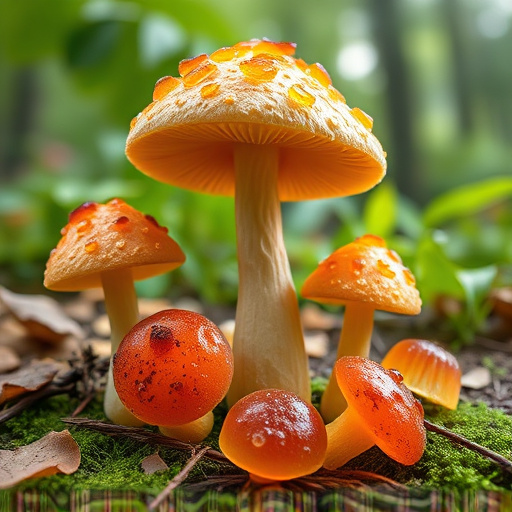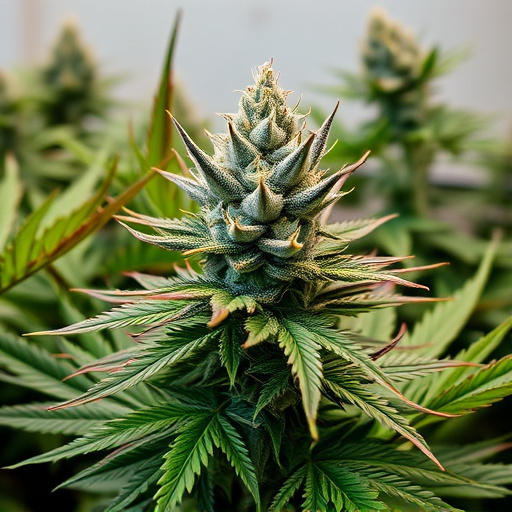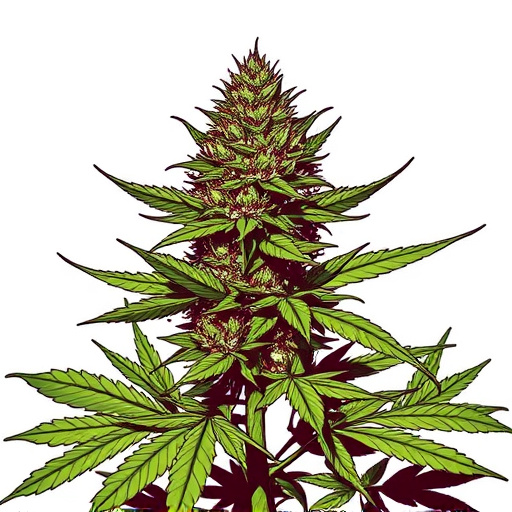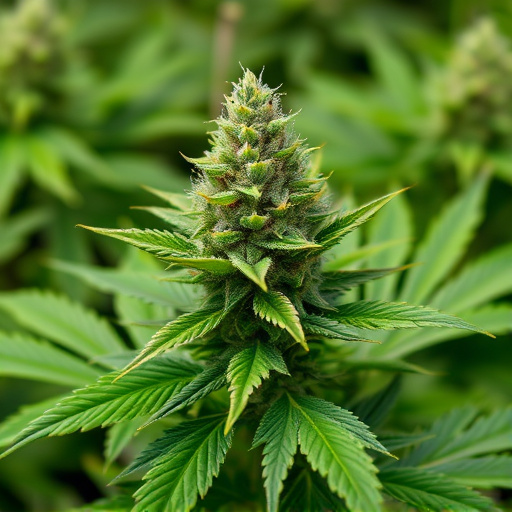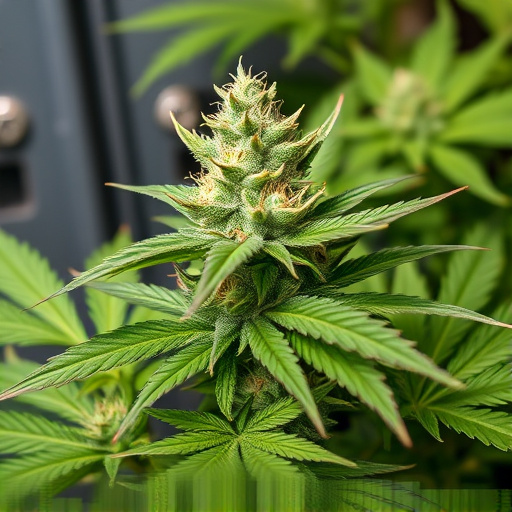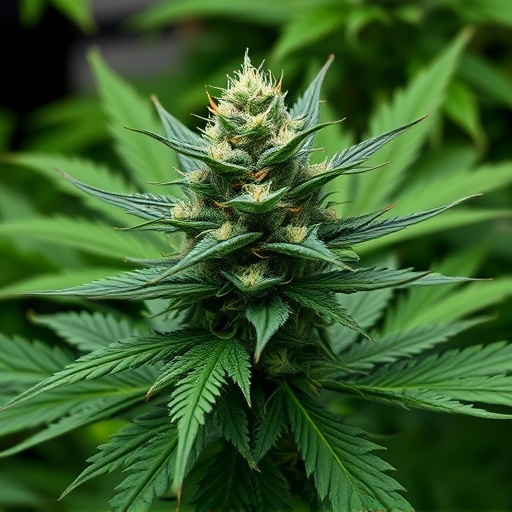Strong cannabis strains, rich in THC and CBD, offer potential therapeutic benefits for various mental health conditions. CBD's anti-anxiety properties target anxiety disorders, while THC's mood-altering effects may help with depression. Balanced profiles provide targeted relief, but high-THC strains should be used cautiously to avoid exacerbating anxiety or psychotic episodes. Consulting healthcare professionals is crucial before incorporating cannabis into mental health management.
Can cannabis flower be a game-changer in managing mental health? With growing interest in its therapeutic potential, exploring this natural compound’s impact on our minds is crucial. This article delves into how specific cannabis compounds interact with our bodies, uncovering the benefits of strong cannabis strains for conditions like anxiety and depression. We’ll also discuss risks and considerations, providing a balanced view on using cannabis for mental health support.
- Understanding Cannabis Compounds and Mental Health Benefits
- Exploring Strong Cannabis Strains for Specific Mental Health Conditions
- Potential Risks and Considerations When Using Cannabis for Mental Health
Understanding Cannabis Compounds and Mental Health Benefits
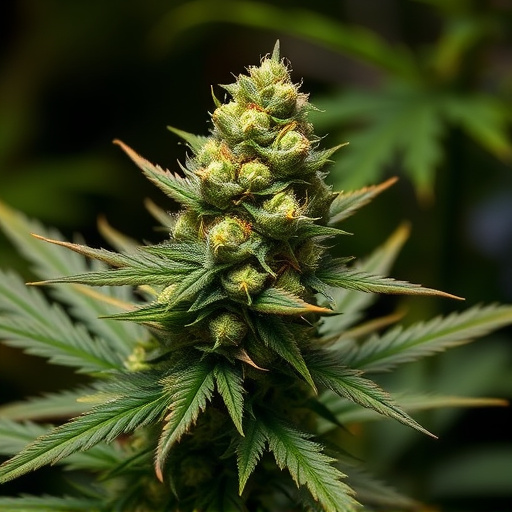
Cannabis contains a diverse range of chemical compounds, with the most well-known being cannabinoids like THC and CBD. These compounds interact with our bodies’ endocannabinoid system (ECS), which plays a significant role in maintaining overall health, including mental wellbeing. Research suggests that specific strong cannabis strains, rich in these cannabinoids, can offer potential therapeutic benefits for various mental health conditions.
For instance, CBD has gained attention for its anti-anxiety and anti-inflammatory properties, making it a promising treatment option for anxiety disorders and other stress-related conditions. Meanwhile, THC is known for its mood-altering effects and may help alleviate symptoms of depression in some users. The right balance of these compounds in strong cannabis strains could potentially provide much-needed relief to individuals struggling with their mental health.
Exploring Strong Cannabis Strains for Specific Mental Health Conditions
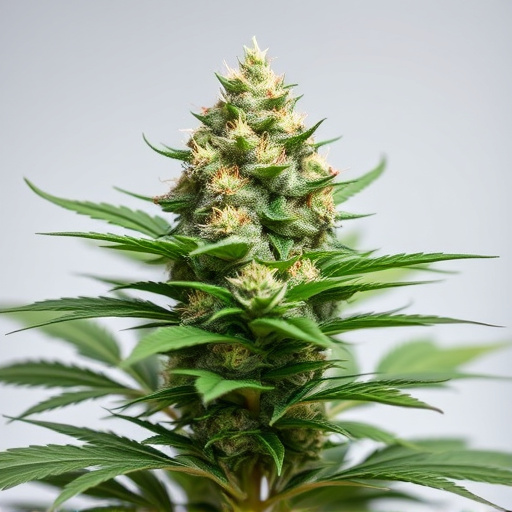
Cannabis has been used for centuries as a natural remedy, and modern research is beginning to uncover its potential therapeutic benefits for mental health conditions. Exploring strong cannabis strains can offer targeted relief for specific disorders. Different strains have distinct chemical profiles, with unique ratios of cannabinoids like THC and CBD, which interact with our body’s endocannabinoid system to produce various effects.
For example, high-THC strains are often sought by individuals looking to manage severe stress, anxiety, or insomnia. The powerful psychotropic effects can induce relaxation and calmness, aiding in the treatment of panic disorders and PTSD. Conversely, CBD-rich strains have gained popularity for their potential anti-inflammatory and anxiolytic properties without the intoxicating effects. These strains are commonly recommended for conditions such as depression, chronic pain, and social anxiety disorder.
Potential Risks and Considerations When Using Cannabis for Mental Health
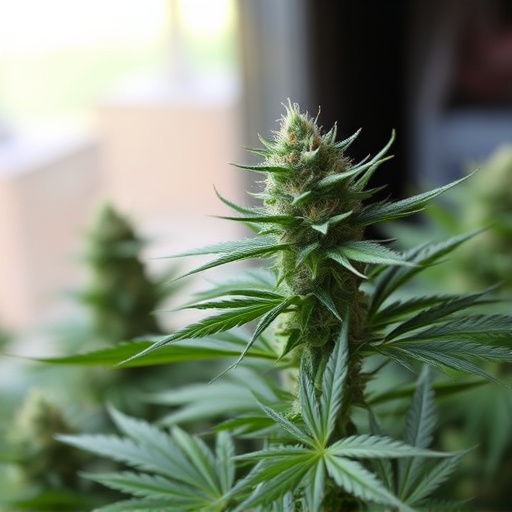
While cannabis has shown promise in aiding mental health, it’s crucial to approach its use with caution. Strong cannabis strains, known for their high THC content, can evoke intense experiences and may not be suitable for everyone. Some individuals might find that these potent strains exacerbate anxiety or trigger psychotic episodes, especially if they have a history of mental health disorders. It’s essential to start with low-potency products and gradually increase dosage under professional guidance.
Additionally, long-term cannabis use remains largely understudied, leaving unknown potential risks for chronic users. The plant’s effect on brain chemistry and its interaction with other medications require further research. It’s vital to consult healthcare professionals before incorporating cannabis into mental health management, especially when considering strong cannabis strains. They can offer personalized advice based on individual needs and health histories.
Cannabis flower holds promise as a complementary approach for managing mental health conditions, with its various compounds interacting with our endocannabinoid system. While research is still evolving, exploring specific strong cannabis strains for target symptoms can be beneficial. However, it’s crucial to weigh potential risks and consider professional guidance, especially when dealing with sensitive mental health concerns. Balancing the use of cannabis with traditional treatments could offer a holistic approach, but further study is needed to fully understand its therapeutic potential.

